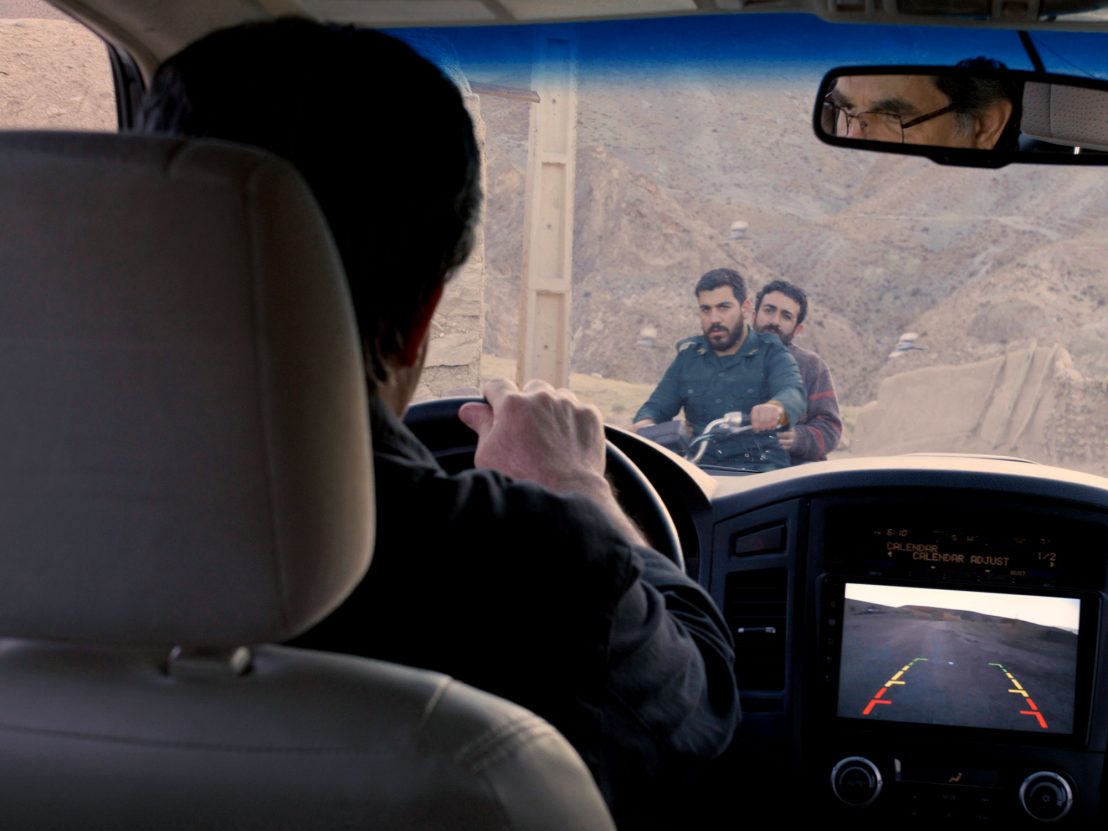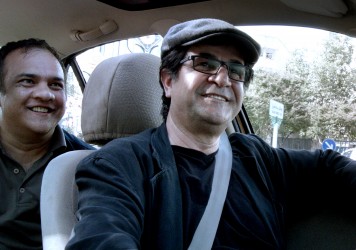
Jafar Panahi plays himself in this lovingly-crafted autofiction that centers on two pairs of lovers.
Mere weeks separate the Venice Film Festival’s world premiere of Jafar Panahi’s newest film No Bears from his latest arrest over accusations of propaganda against the Iranian government. The filmmaker – first imprisoned in 2010 on the same charges – has been banned from making movies, writing screenplays, and speaking with any Iranian or foreign media for the last 10 years, with another 10 still oustanding on his sentence. This has not stopped the director, and in the decade since his first arrest, he has produced a whopping five features, including the seminal This Is Not a Film (2011) and Golden Bear-winning Taxi Tehran (2015).
Panahi’s literal and metaphorical entrapment feeds into the metatextuality of No Bears. Here, the filmmaker plays himself, but all else around him is a mixture of fact and fiction, with two sets of lovers placed against the political structures that have forced the Iranian master into a stateless exile. The first pair comprises a contemporary Romeo and Juliet kept apart by the outdated rituals of the small community that acts as the director’s refuge; the second is a pair of long-term partners whose relationship runs parallel to their fight against Iran’s authoritarian regime.
Diaspora to Panahi is conveyed by this very sense of statelessness. “He feels trapped, with no future, no freedom and no job”, Panahi tells his fictional assistant director (played by his real-life sound designer Reza Heydari) a simply put yet beautifully layered encapsulation of this particular kind of claustrophobic despair. The ache of diaspora is translated through the dichotomy of no longer basking in the sense of belonging once provided by home while knowing no place will ever be able to supplant it, displacement creating a gaping hole that grows bigger with every merciless blown thrown by a social apparatus that acts as punisher when it was designed to serve as custodian.
No Bears often echoes Abbas Kiarostami’s forlorn Taste of Cherry, with a car recklessly driving through the arid lands of the Iranian desert to carry out a nihilistic desire to flirt with self-destruction. Yet, Panahi – who started his career under Kiarostami’s wing – bypasses the overbearing melancholia often employed by his mentor in favour of once again tapping into the welcome use of humour that permeates most of his films. Life, as they say, goes on, and No Bears observes people toiling away at existing while Panahi wrestles with the existential, this juxtaposition providing the cleverly timed comic relief that aids his witty social commentary.
There are no bears in No Bears, the animal standing for the way in which control is often established in society through the perpetuation of machiavellian myths. “Stories are made up to scare us. Our fear empowers others”, a man tensely whispers to Panahi as they near the heavily-policed Iranian borders. The same ground that once bore the sturdy foundation of a loving home now stands eternally scarred by the searing cuts of imaginary lines, an irreparable fissure that – in Panahi’s heartfelt visual diary – cruelly severs the frail umbilical cord to the motherland.
Published 9 Sep 2022

This brisk road movie from Jafar Panahi sees the Iranian director on top observational form.

This lyrical, on-the-fly road movie about the cinematic and poetic value of daily existence is a must see.

A family embarks on a perilous road trip in Iranian director Panah Pahani’s assured, darkly comic debut.